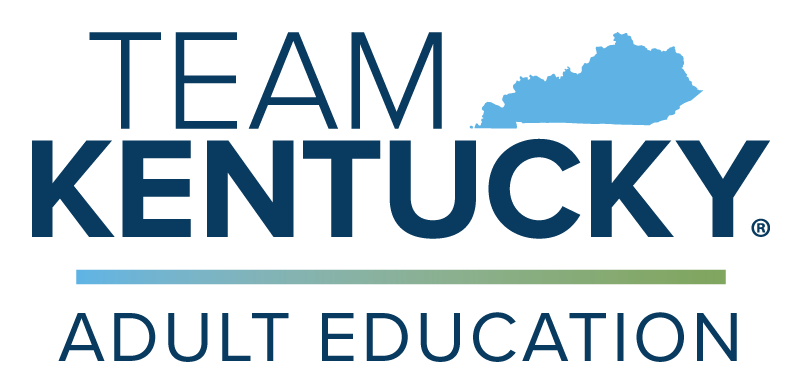Blank Documents for Replication

As featured in the MM/WW topic “An Introduction to the Case Management Service Delivery Model for Adult Education” facilitated by Kathryn Hardman on March 1 & 3, 2021.
PRODUCT DESCRIPTION
The case management system was implemented so that instructors, whether working from home or in the centers, could view and enter pertinent information about instructors’ contacts with students via shared Google sheets. A second and equally important reason for the case management system was designating one person per student who was responsible for managing the case and monitoring contact with that student.
The library experience bags were implemented to provide GED® study materials for students to check out from libraries for distance learning.
This innovation also included traveling instructors who would administer GED® ready tests and provide instruction at various community locations. We chose this strategy in order to try to reach as many students outside the learning centers as possible. However, COVID-19 restrictions have kept the traveling instructors from meeting with students in various off-center locations.
One county has held GED® weekends for a number of years and experienced success, so the innovation proposal expanded that strategy to all counties in the consortium.
The tablet program was instituted to provide students access to tech devices for distance learning. The tablets also include internet connection provided through SIM cards.

LIVE AND LEARN, MESSY MOMENTS
Some messy moments were trying to stay current on assigning cases to instructors and keeping up with monitoring the case management. Another challenge was all staff having to learn about Google sheets in order to implement case management. Along with the collaborative Google Sheets, we had to determine the best way to share the information to meet FERPA compliance using a free Google account.
Another difficult aspect is moving from surface-level contacts with students to meaningful contacts that lead to deeper conversations with students about barriers or motivation. Many students wouldn’t answer phone calls, text messages, or emails. Although this occurred sometimes before the pandemic, this was amplified in 2020.
With the emergency move to online instruction, students had to learn to use technology without face-to-face assistance from instructors. Technology glitches are frustrating moments. Providing technical assistance to students can be time-consuming or challenging.
Purchasing and programming the tablets and negotiating the necessary internet service for them was a long and arduous process. Some problems with the tablets included finding an internet provider that would offer less than a 2-year contract and determining what software would restrict internet access to appropriate sites.


MASTERY MOMENTS
Instructors appreciated the opportunity to experiment with providing traveling instructors at sites in rural areas in their counties. Some moments that made us proud were related to teamwork. A number of instructors worked together to create the instructional materials that would be used for GED weekends. Other team members compiled and stored GED teaching resources on flash drives so that the brand-new traveling instructors could use those resources with their students.
Remote TABE testing has been implemented.
One positive change from the pandemic is that instructors from each county are taking photos of graduates in caps and gowns and using those for social media posts and outreach. Terry Newquist writes up a first-class feature on each graduate for social media posts. Now, these posts occur more frequently than twice-a-year at formal graduations, and these are some of the most impactful and motivating posts.
Instructors have demonstrated growth mindset by accepting the challenge of learning new technology, programs, and the tracking system; they have changed their entire teaching styles since the spring, and we celebrated their diligence and adaptability.
Results of Product
- As of December 3, 2020, in Laurel County, 19 students had earned their GED credential in FY21.
- As of November 30, 2020, the program had helped 35 students earn an MSG and 37 students earn their GED®s.
- Although we didn’t fully meet our PLC SMART Goal, we finished November at 93% of our goal.
- The library experience bags were checked out or renewed 19 times despite significant library closures.
- Traveling instructors held 51 sessions with students and administered 13 GED Ready tests during FY20 & FY21.
Evaluation of the data is difficult because we cannot compare this year’s data with last year’s due to the impact of COVID-19. Last year 40% of students who attended GED weekend earned their GEDs shortly thereafter. This year 47% of students who have attended GED weekend have earned their GEDs.
View-only copy of Data Tracking Sheet and Impact of the Product

WHAT DO WE NEED TO CLONE THIS PRODUCT?
To replicate these innovations, another provider would need the following:
-
- GED® Weekends Schedule & Tips
- List of Supplies for Traveling Instructors
- Tips for Purchasing and Fitting up Tablets
- List of Resources for GED® Experience Bags for Public Libraries
- Blank Google sheet for Tracking


WHAT IS THE PROCESS?
GED Weekends Schedule & Tips
- Provide food for students.
- The first weekend of the month is not the best time to have GED weekend.
- Invite students who are on the cusp of passing or almost finished. Not everyone invited will be able to come that weekend.
- Prep a curriculum that can be modified for learner needs for each session. We had ours printed and bound. We wrote it based on the GED High Impact Indicators for math.
- Plan dates for the entire year early.
- Have a dedicated teacher as the host so that teacher can create an established rhythm and appropriate pacing after learning what works and what doesn’t.
- Use these boot camp resources (make copies) to help you get started.
List of Supplies for Traveling Instructors:
- Sign-in sheet
- Registration/Demographic sheet
- Pencils and Pens
- Chromebooks (7)
- Mobile Hot spots (2) (Verizon Jetpack 8800L)
- Printer (Canon Pixma iP110)
- Lessons/worksheet packet database on flash drive (for student study)
- Yard Signage (helps to direct students to you)
- Instructor Laptop (optional, found that it was better than CB for many required tasks)
- Select a provider that will offer the best possible service to your counties. Verizon was the only provider that could provide service to the remote areas of Knox, Whitley, and Laurel counties.
- Negotiate a month-by-month contract for internet service. At first, Verizon would only offer us a 2-year contract, which was not feasible with KY Skills U funding guidelines. Eventually, Verizon partnered with a non-profit, which allowed us to purchase service on a month-by-month basis.
- Thirty Samsung tablets through a 3rd party was around $6000.
- Service with unlimited data through the Non-profit and Verizon runs about $1100 per month for all 30 tablets.
- We had to buy software (Wandera and Maas360) to manage the tablets and lock out any programs that we don’t want our learners to access. We actually only needed Maas 360.

List of Resources for GED Experience Bags for Public Libraries:
- TI-30XS MultiView Calculator
- Steck_Vaughn Complete Test Preparation for the GED
- Passing the Test guide by GED Testing Service (link to printhub) or FAQ type page
- KY Skills U Folder containing laminated:
- GED formula sheet/Calculator Directions
- Extended Response Answer Guidelines
- Extended Response Quick Tips
- Skills U Program Brochures/Fliers


